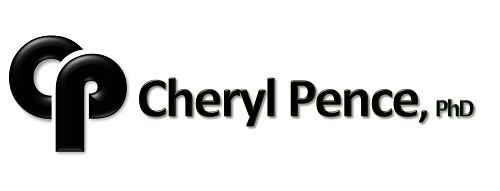Career satisfaction and personal well-being is found to be related to effective self-care strategies. Having a balanced life and maintaining a good wellness plan, can impact all areas of an individual (body, mind & spirit) as well as all areas of life such as work, family, friends, and more. The wellness and self-care research studies described here include a wellness program developed and facilitated for a graduate counseling program, a female-based yoga class, and exploring healthy sexuality through a women’s support group/book club.
Counselor Wellness Competencies
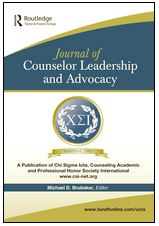
Foundational to counseling, wellness and counselors’ attention to the integration of wellness-related counseling assessments and interventions are preventative and unique to the profession. Nine competencies of counselor, professional and client-centered wellness were developed as part of the Chi Sigma Iota Counselor Wellness Competencies Sub-Committee. They were endorsed by the CSI Executive Council on November 6, 2020 and can be found on the CSI website. The development of the competencies was published in the Journal of Counselor Leadership and Advocacy (2021).
Teaching mindfulness for the self-care and well-being
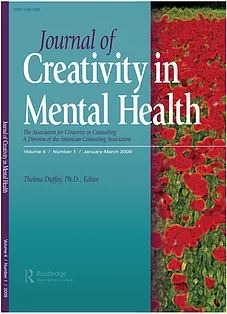
The demands and expectations placed on counselors-in-training can make them susceptible to stress, burnout, and poor school-life balance. Therefore, counseling students could benefit from learning mindfulness techniques as self-care strategies that promote increased relaxation, coping, and stress prevention. This mixed-methods study examined graduate counseling students’ perceptions of mindfulness training to determine its impact on self-efficacy, mood, stress, and other areas of wellness. Participants reported enhanced relaxation, increased awareness of the need for self-care, better understanding of the connection between mindfulness and overall well-being, and an impact of mindfulness on other areas of their lives. This research was published in the Journal of Creativity in Mental Health (2020) with Dr’s Lacretia Dye and Monica Galloway Burke.
Exploring the Benefits of a Wellness Program for Future Counselors
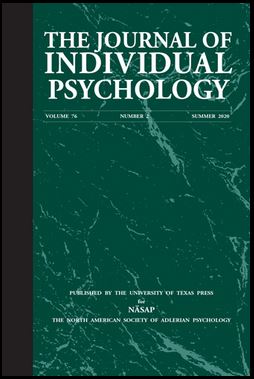
As part of a semester-long student-led wellness program, graduate students in counselor education were introduced to a variety of self-care strategies, including dyadic and experiential activities for the mind, body, and spirit. The conceptual framework for the pilot program was the Adlerian-based Indivisible Self Model of Wellness. Findings showed that offering this relatively simple and flexible wellness program had a positive impact on students’ knowledge and practice of Wellness. The research results were presented at the American Counseling Association Conference (2010)and published in two academic journal articles in the Journal of Individual Psychology (2012, 2014) with Dr’s Isabel Thompson, Eric Thompson, and Sondra Smith-Adcock. Grant funding was also provided: Wolf, C.P., Thompson, I., & Thompson, E. (2008, June 1). Refresh your Mind, Rejuvenate your Body, Renew your Spirit: a Wellness Program for Future Counselors. 2008 Chi Sigma Iota Research Grant ($400).
Using Yoga to Improve Wellness

Yoga has gained popularity as a way to relieve stress and maintain well-being. It may also be a helpful resource for counselors to learn effective self-care strategies to sustain personal wellness and professional competence. This pilot study examined the impact of Luna Yoga, a four-week program created specifically for women to enhance creativity, connection, and self-awareness, and facilitate a socially supportive environment unlike traditional yoga sessions. This
pilot study employed a delayed treatment control group design to test the impact of the Luna Yoga intervention on reported levels of wellness, resulting in an increase in social wellness among female professional counselors and counselors-in-training. This research was presented at the American Counseling Association Conference (2010) and published in the Journal of Creativity in Mental Health (2017) with Elisa Mott, Isabel Thompson, Adrienne Baggs, and Dr. Ana Puig. Grant funding was also provided: Wolf, C.P., Mott, E., Thompson, I., & Baggs, A. (2009, June 1). Using Yoga to Improve Wellness: Exploring the Effects of a Four-Week Luna Yoga Program on Female Counselors and Counselors-in-Training. 2009 Chi Sigma Iota Research Grant ( $300) & University of Florida Center for Spirituality and Health Research Supplemental Grant ($380).
The Impact of Stress and Sleep on College Retention and GPA
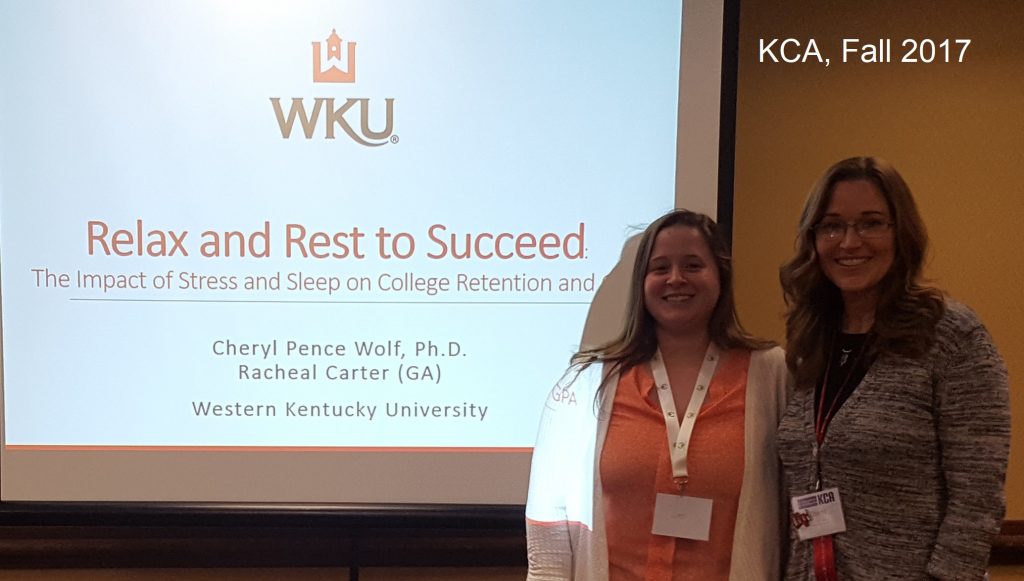
This interprofessional collaboration addressing student wellness needs on campus focused on the mental health, stress, sleep, and coping strategies assessed on the National College Health Assessment. It included mentoring graduate students in research and the development of wellness programs. This research was conducted with Racheal Carter (graduate assistant) and presented at the Kentucky Counseling Association conference (2017). Initial collaborations also included Dr. Jill Duba Sauerheber, Dr. Todd Misener, Kathyrn Steward, and Alyssa Arnold.
